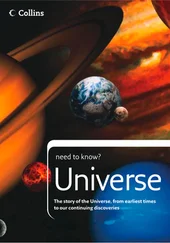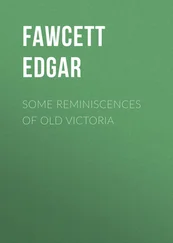Millicent Fawcett - Some Eminent Women of Our Times
Здесь есть возможность читать онлайн «Millicent Fawcett - Some Eminent Women of Our Times» — ознакомительный отрывок электронной книги совершенно бесплатно, а после прочтения отрывка купить полную версию. В некоторых случаях можно слушать аудио, скачать через торрент в формате fb2 и присутствует краткое содержание. Жанр: foreign_antique, foreign_prose, на английском языке. Описание произведения, (предисловие) а так же отзывы посетителей доступны на портале библиотеки ЛибКат.
- Название:Some Eminent Women of Our Times
- Автор:
- Жанр:
- Год:неизвестен
- ISBN:нет данных
- Рейтинг книги:3 / 5. Голосов: 1
-
Избранное:Добавить в избранное
- Отзывы:
-
Ваша оценка:
- 60
- 1
- 2
- 3
- 4
- 5
Some Eminent Women of Our Times: краткое содержание, описание и аннотация
Предлагаем к чтению аннотацию, описание, краткое содержание или предисловие (зависит от того, что написал сам автор книги «Some Eminent Women of Our Times»). Если вы не нашли необходимую информацию о книге — напишите в комментариях, мы постараемся отыскать её.
Some Eminent Women of Our Times — читать онлайн ознакомительный отрывок
Ниже представлен текст книги, разбитый по страницам. Система сохранения места последней прочитанной страницы, позволяет с удобством читать онлайн бесплатно книгу «Some Eminent Women of Our Times», без необходимости каждый раз заново искать на чём Вы остановились. Поставьте закладку, и сможете в любой момент перейти на страницу, на которой закончили чтение.
Интервал:
Закладка:
The citizens of Yarmouth marked their gratitude and veneration for her by putting a stained-glass window to her memory in St. Nicholas’s Church. Her name is reverently cherished in her native town. Dr. Stanley, who was Bishop of Norwich at the time of her death, gave expression to the general feeling when he said, “I would canonise Sarah Martin if I could!”
V
MARY SOMERVILLE
Mary Somerville, the most remarkable scientific woman our country has produced, was born at Jedburgh in 1780. Her father was a naval officer, and in December 1780 had just parted from his wife to go on foreign service for some years. She had accompanied her husband to London, and on returning home to Scotland was obliged to stay at the Manse of Jedburgh, the home of her brother-in-law and sister, Dr. and Mrs. Somerville. Here little Mary was born, in the house of her uncle and aunt, who afterwards became her father and mother-in-law, for her second husband was their son. In the interesting reminiscences she has left of her life, she records the curious fact that she was born in the home of her future husband, and was nursed by his mother.
Mary was of good birth on both sides. Her father was Admiral Sir William Fairfax, of the well-known Yorkshire family of that name, which had furnished a General to the Parliamentary army in the civil wars of the reign of Charles I. This family was connected with that of the famous American patriot, George Washington. During the American War of Independence, Mary Somerville’s father, then Lieutenant Fairfax, was on board his ship on an American station, when he received a letter from General Washington, claiming cousinship with him, and inviting the young man to pay him a visit. The invitation was not accepted, but Lieutenant Fairfax’s daughter lived to regret that the letter which conveyed it had not been preserved. Admiral Fairfax was concerned with Admiral Duncan in the famous victory of Camperdown, and gave many proofs that he was in every way a gallant sailor and a brave man. Mary Somerville’s mother was of an ancient Scottish family named Charters. The pride of descent was very strongly marked among her Scotch relatives. Lady Fairfax does not seem much to have sympathised with her remarkable child. Mary, however, inherited some excellent qualities from both parents. Lady Fairfax was, in some ways, as courageous as her husband; notwithstanding a full allowance of Scotch superstitions and a special terror of storms and darkness, she had what her daughter called “presence of mind and the courage of necessity.” On one occasion the house she was living in was in the greatest danger of being burned down. The flames of a neighbouring fire had spread till they reached the next house but one to that which she occupied. Casks of turpentine and oil in a neighbouring carriage manufactory were exploding with the heat. Lady Fairfax made all the needful preparations for saving her furniture, and had her family plate and papers securely packed. She assembled in the house a sufficient number of men to move the furniture out, if needs were. Then she quietly remarked, “Now let us breakfast; it is time enough for us to move our things when the next house takes fire.” The next house, after all, did not take fire, and, while her neighbours lost half their property by throwing it recklessly into the street, before the actual necessity for doing so had arisen, Lady Fairfax suffered no loss at all. The same kind of cool courage was often exhibited by Mary Somerville in later life. On one occasion she stayed with her family at Florence during a severe outbreak of cholera there, when almost every one who could do so had fled panic-stricken from the city.
During the long absences of Sir William Fairfax on foreign service, Lady Fairfax and her children led a very quiet life at the little seaside village of Burntisland, just opposite to Edinburgh, on the Firth of Forth. As a young child, Mary led a wild, outdoor life, with hardly any education, in the ordinary sense of the word, though there is no doubt that in collecting shells, fossils, and seaweeds, in watching and studying the habits and appearance of wild birds, and in gazing at the stars through her little bedroom window, the whole life of this wonderful child was really an education of the great powers of her mind. However, when her father returned from sea about 1789 he was shocked to find Mary “such a little savage”; and it was resolved that she must be sent to a boarding school. She remained there a year and learned nothing at all. Her lithesome, active, well-formed body was enclosed in stiff stays, with a steel busk in front; a metal rod, with a semicircle which went under the chin, was clasped to this busk, and in this instrument of torture she was set to learn columns of Johnson’s dictionary by heart. This was the process which at that time went by the name of education in girls’ schools. Fortunately she was not kept long at school. Mary had learned nothing, and her mother was angry that she had spent so much money in vain. She would have been content, she said, if Mary had only learnt to write well and keep accounts, which was all that a woman was expected to know. After this Mary soon commenced the process of self-education which only ended with her long life of ninety-two years. She not only learnt all she could about birds, beasts, fishes, plants, eggs and seaweeds, but she also found a Shakespeare which she read at every moment when she could do so undisturbed. A little later her mother moved into Edinburgh for the winter, and Mary had music lessons, and by degrees taught herself Latin. The studious bent of her mind had now thoroughly declared itself; but till she was about fourteen she had never received a word of encouragement about her studies. At that age she had the good fortune to pay a visit to her uncle and aunt at Jedburgh, in whose house she had been born. Her uncle, Dr. Somerville, was the first person who ever encouraged and helped her in her studies. She ventured to confide in him that she had been trying to learn Latin by herself, but feared it was no use. He reassured her by telling her of the women in ancient times who had been classical scholars. He moreover read Virgil with her for two hours every morning in his study. A few years later than this she taught herself Greek enough to read Xenophon and Herodotus, and in time she became sufficiently proficient in the language to thoroughly appreciate its greatest literature.
One of the most striking things about her was the many-sided character of her mind. Some people – men as well as women – who are scientific or mathematical seem to care for nothing but science or mathematics; but it may be truly said of her that “Everything was grist that came to her mill.” There was hardly any branch of art or knowledge which she did not delight in. She studied painting under Mr. Nasmyth in Edinburgh, and he declared her to be the best pupil he had ever had. Almost to the day of her death she delighted in painting and drawing. She was also an excellent musician and botanist. The special study with which her name will always be associated was mathematics as applied to the study of the heavens, but she also wrote on physical geography and on microscopic science. It is sometimes thought that if women are learned they are nearly sure to neglect their domestic duties, or that, in the witty words of Sydney Smith, “if women are permitted to eat of the tree of knowledge, the rest of the family will soon be reduced to the same aerial and unsatisfactory diet.” Mrs. Somerville was a living proof of the folly of this opinion. She was an excellent housewife and a particularly skilful needlewoman. She astonished those who thought a scientific woman could not understand anything of cookery, by her notable preparation of black currant jelly for her husband’s throat on their wedding journey. On one occasion she supplied with marmalade, made by her own hands, one of the ships that were being fitted out for a Polar expedition. She was a most loving wife and tender mother as well as a devoted and faithful friend. She gave up far more time than most mothers do to the education of her children. Her love of animals, especially of birds, was very strongly developed. With all her devotion to science she was horrified at the barbarities of vivisection, and cordially supported those who have successfully exerted themselves to prevent it from spreading in England to the same hideous proportions which it has reached on the continent of Europe. Many pages of one of her learned works were written with a little tame mountain sparrow sitting on her shoulder. On one occasion, having been introduced to the Hon. Mountstuart Elphinstone, she says he quite won her heart by exclaiming, in reference to the number of little birds that were eaten in Italy, “What! robins! Eat a robin! I would as soon eat a child.”
Читать дальшеИнтервал:
Закладка:
Похожие книги на «Some Eminent Women of Our Times»
Представляем Вашему вниманию похожие книги на «Some Eminent Women of Our Times» списком для выбора. Мы отобрали схожую по названию и смыслу литературу в надежде предоставить читателям больше вариантов отыскать новые, интересные, ещё непрочитанные произведения.
Обсуждение, отзывы о книге «Some Eminent Women of Our Times» и просто собственные мнения читателей. Оставьте ваши комментарии, напишите, что Вы думаете о произведении, его смысле или главных героях. Укажите что конкретно понравилось, а что нет, и почему Вы так считаете.
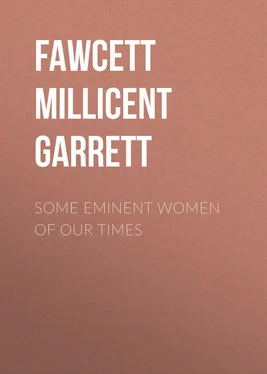

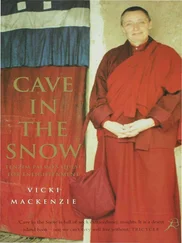
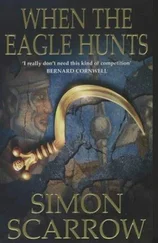
![Корнелл Вулрич - Murder at Mother’s Knee [= Something That Happened in Our House]](/books/398097/kornell-vulrich-murder-at-mother-s-knee-somethin-thumb.webp)
